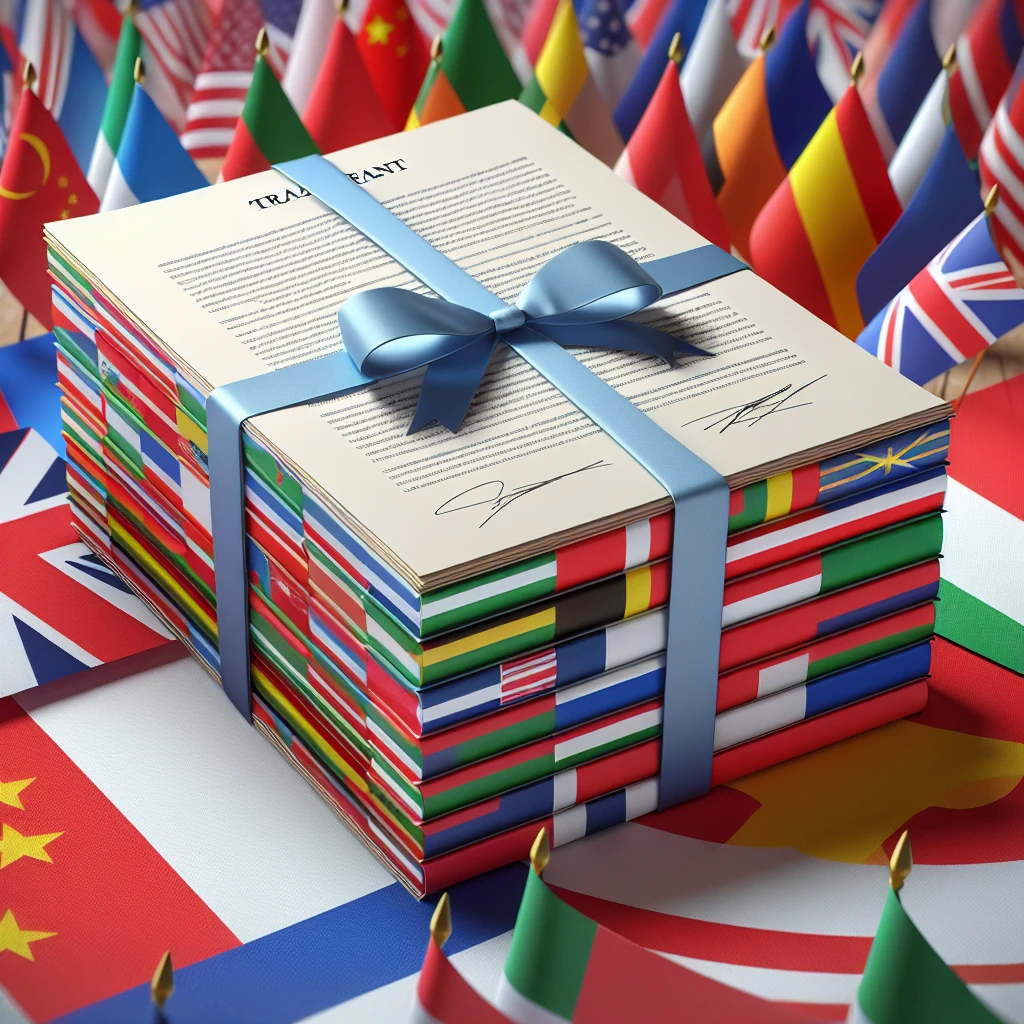Understanding International Trade Agreements
When it comes to ecommerce and its global reach, understanding international trade agreements is not just beneficial; it's a necessity for staying competitive and compliant. These agreements, which are often complex and multifaceted, can significantly impact your online business, from the tariffs you pay to the trade barriers you may face. For instance, agreements like NAFTA or the newly formed USMCA, or international bodies like the WTO, set the stage for trade rules that dictate market access and duty rates.
- NAFTA and USMCA have reshaped North American trade, offering reduced tariffs and clearer rules for ecommerce businesses operating across Canada, the U.S., and Mexico.
- The WTO's agreements provide a framework for international commerce, including ecommerce, ensuring that trade flows as smoothly, predictably, and freely as possible.
But it's not just about understanding the agreements themselves; it's about recognizing their real-world implications. Tariffs can either be a hurdle or a competitive advantage, depending on how well you navigate these agreements. For example, sourcing products from countries with which your home country has a favorable trade agreement can lead to cost savings that boost your bottom line.
Moreover, trade barriers such as quotas or stringent regulations can be navigated through strategic planning and thorough knowledge of compliance requirements. This includes staying abreast of the latest changes, such as those in the VAT regulations that affect cross-border ecommerce. In-depth understanding and strategic application of international trade laws can be the difference between an ecommerce business that thrives internationally and one that stumbles.

Customs and Export Controls for Ecommerce
Delving deeper into the labyrinth of international trade, ecommerce businesses must also grapple with the intricacies of customs and export controls. These regulations are more than just bureaucratic red tape; they are essential checkpoints that ensure the legal and safe movement of goods across borders. Ignorance of these processes can lead to costly delays, penalties, and even seizure of goods, which is why a clear understanding is paramount for any ecommerce business looking to ship internationally.
- Customs processes involve the declaration of goods to the appropriate authorities, assessment of duties and taxes, and ensuring compliance with import and export restrictions.
- Export control regulations are designed to prevent the distribution of certain items that could be used in ways that are contrary to the interests of the exporting country, including national security concerns or foreign policy objectives.
For ecommerce entrepreneurs, navigating these regulations means mastering a complex web of classification codes, such as the Harmonized System (HS) for tariffs and the Export Control Classification Number (ECCN) for export controls. Each product has a specific code that determines how it is treated at customs and what kind of export license, if any, is required.
Moreover, the rise of global tensions and trade wars has made export controls more stringent and dynamic, necessitating a vigilant approach to compliance. Businesses must stay informed about the ever-changing lists of sanctioned countries, entities, and individuals. This is where leveraging expert resources and tools becomes invaluable, such as the comprehensive guide to ecommerce and international trade laws or the deep dive into ecommerce financial statements, which can highlight potential financial implications of non-compliance.
Understanding these controls is not just about avoiding penalties; it's about building a reputation for reliability and trust with customers and partners. A business that can confidently navigate customs and export controls is one that can expand its international reach while maintaining a seamless customer experience. This expertise can also lead to more strategic decisions in product sourcing and market expansion, aligning with the broader objectives of international trade agreements.
Ultimately, customs and export controls are critical components of the international ecommerce puzzle. By investing in knowledge and compliance, businesses can unlock new markets and opportunities, ensuring a robust and compliant international presence.
Best Practices for Trade Law Compliance
As we pivot to the cornerstone of compliance in international ecommerce, it's imperative to underscore that adherence to trade laws is not just a legal obligation but a strategic business advantage. In the digital age, where borders are blurred and markets are interconnected, understanding and implementing best practices for trade law compliance is the linchpin of success for any ecommerce venture.
First and foremost, education is key. Ecommerce operators must be well-versed in the nuances of international trade laws, which can be as volatile as they are varied. Staying abreast of legal changes and understanding how they impact your business model is crucial. Resources like the strategies for global VAT compliance and ecommerce and international trade laws are invaluable for keeping your knowledge base current.
- Conduct regular audits of your supply chain to ensure every component complies with trade regulations.
- Invest in compliance software that can help streamline and automate the tracking of international regulations.
- Establish clear internal policies and procedures for your team to follow when handling international shipments.
- Partner with experienced customs brokers and legal experts who can navigate complex trade scenarios on your behalf.
Another critical aspect is due diligence. This involves meticulous research into the origins of your products, the components used, and the countries you're exporting to or importing from. It's not enough to assume that your suppliers are compliant; you must verify it. This due diligence extends to understanding the various trade agreements that might affect your business, such as the General Agreement on Tariffs and Trade (GATT) or regional free trade agreements.
Documentation is another non-negotiable. Accurate and thorough record-keeping is a must for any ecommerce business. This includes maintaining detailed transaction records, shipping documents, and classification codes for every product. Such diligence not only facilitates smoother customs processes but also provides a safety net in case of audits or disputes.
Lastly, don't underestimate the power of technology in ensuring compliance. Leveraging tools that provide real-time updates on trade law changes, automate customs declarations, and facilitate electronic record-keeping can be a game-changer. These technologies not only reduce the risk of human error but also significantly cut down on the time and resources spent on compliance-related tasks.
Incorporating these best practices into your business operations will not only protect you from penalties and legal issues but also fortify your brand's reputation in the global marketplace. Remember, in the world of international ecommerce, compliance is not a cost—it's an investment in your company's future.







